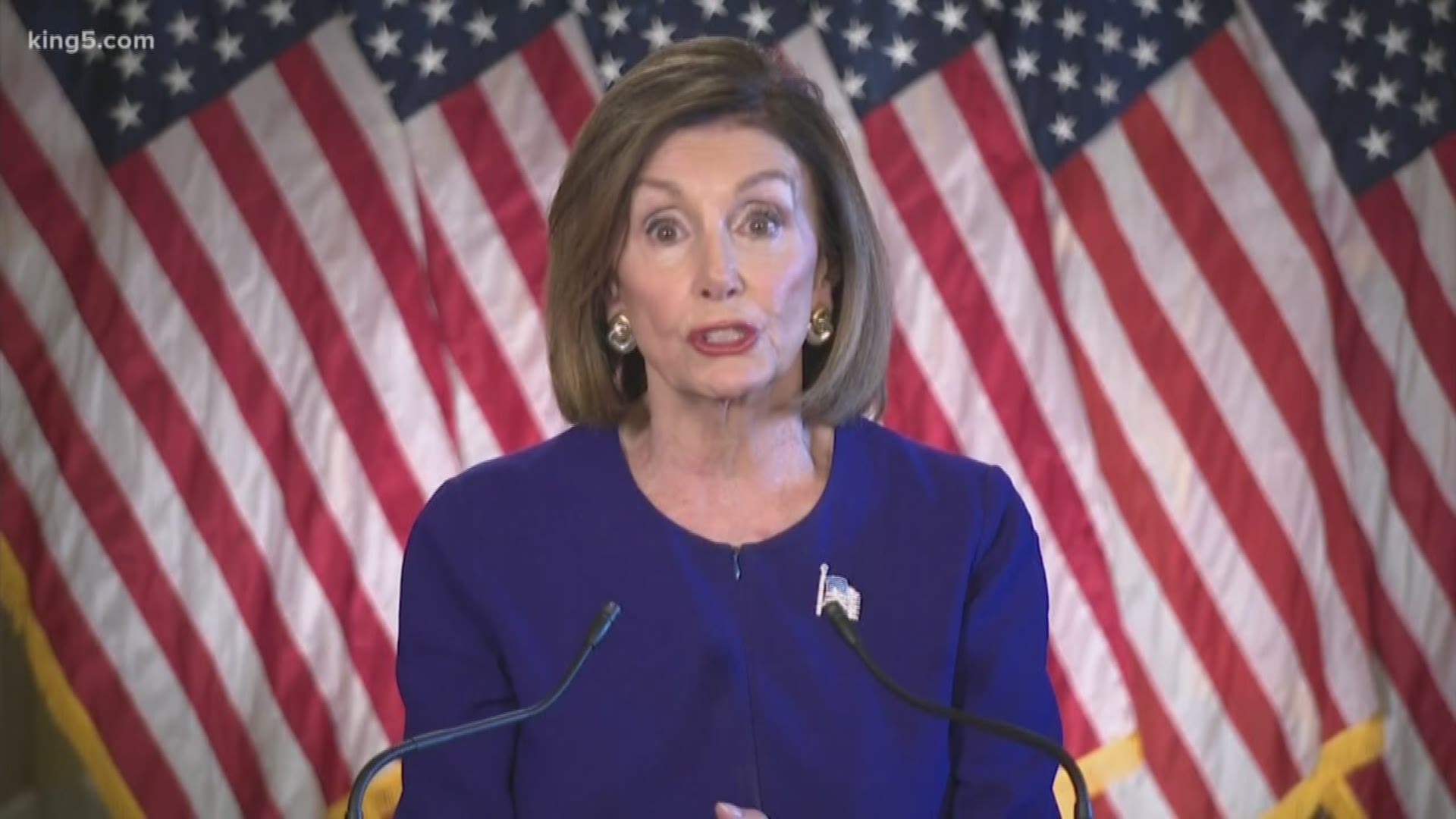SEATTLE — For the fourth time in US history, a sitting president is the subject of an impeachment inquiry - Andrew Johnson, Richard Nixon, Bill Clinton and now Donald Trump. But what does it mean? What will happen next?
The rarely used procedure in the Constitution stipulates that the president and other officers of government, "Shall be removed from office on impeachment for, and conviction of, treason, bribery, or other high crimes and misdemeanors."
Impeachment can lead to removal from office, but does not mean removal itself.
Seattle University political science professor Marco Lowe is here to break down the process and tell us what it means.
Investigations on President Trump have been ongoing for a while now, but investigations and reports do not trigger an impeachment.
The impeachment inquiry was triggered by the whistle-blower account who heard the conversation in July between Trump and the president of Ukraine, Volodymyr Zelensky. They felt that there was a lot of pressure on the president of Ukraine to investigate charges against former Vice President Biden.
This led to the whistle-blower filing a complaint and resulted in Trump releasing his call with President Zelensky, which was not the full transcript.
Speaker Nancy Pelosi had two options: form a new committee or have the already established committees investigate the crimes and send what they find to the judiciary committee.
Pelosi chose to do the latter.
The House Judiciary will then review the allegations and can vote to send it to the House Floor. If the House Floor votes on impeachment, it then moves to the Senate for trial.
If the Senate holds the trial for impeachment, they can vote that they didn't find enough evidence, to censure the president, meaning they cannot run for future office, or to remove the president with a two-thirds majority.
Looking back to the complexity of Watergate, the Senate vote might be unlikely despite the seriousness of the charges.
The whistle-blower law exists to protect people from being demoted or having retaliation committed against them, but Professor Lowe says that it is very unlikely for the identity of the whistle-blower to remain protected.
"When the Trump Administration finds an accuser against them they dig up everything they can," said Professor Lowe. There is going to be a lot of pressure to find out who this person is."
Watch New Day Northwest 11 AM weekdays on KING 5, and streaming live on KING5.com. Connect with New Day via Facebook, Twitter, Instagram.

